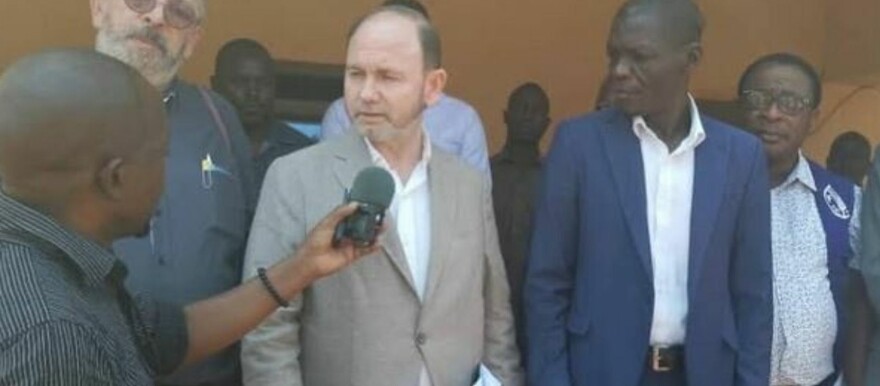The World Bank Country Manager in South Sudan, Firas Raad, on Monday visited the Western Equatoria State capital Yambio Town to assess the development priorities of the state government.
Speaking to the journalists after a brief meeting with state officials, Raad said the World Bank team and the state officials agreed that the former will support the state in agricultural sector.
“We had the pleasure to visit Yambio in Western Equatoria State today (Monday) and we had a brief meeting with the Governor Alfred Futuyo and his cabinet to discuss our partnership framework in South Sudan which set up our priorities in collaboration with the Government of South Sudan in the next five years,” he said. “It is important for this program to go outside of Juba and to the states and to meet various stakeholders to assess with them what the key priorities of development are. So, we set up our priorities in line with the government priorities so that everybody reflects on what we get through consultations.”
The World Bank boss stated that they are here in South Sudan to support the government to improve the economy in next 5 years.
“We are covering focusing in areas related to climate change, promoting resilience, climate shocks, helping the private sector to create jobs, particularly in agriculture, we are also looking at infrastructure alongside investing in human capital,” he explained. “Lastly, we are focusing on the public sector and strengthening institutions. These are the issues we looked at and discussed.”
For his part, Western Equatoria State Governor Gen. Alfred Futuyo Karaba welcomed the World Bank officials and said the priority of his government is agriculture.
“The director of World Bank came to visit us in Western Equatoria State and we discussed a lot of things. We are waiting for implementation. There were some food items like cereals which were imported from Ukraine which is now in war. South Sudan will now depend on Western Equatoria for food because we land that can growth any kind of food. We shall have enough food production to even export,” he said. “We have agreed that they (World Bank) will support the people of Western Equatoria so that we have enough food, good health facilities and education.”
The World Bank is working on two ambitions goals of ending extreme poverty and promoting shared prosperity on a livable planet. The target is to reduce the percentage of people living in extreme poverty to 3 percent by the year 2030 and increase of the income of the bottom 40 percent of the population in each country.




